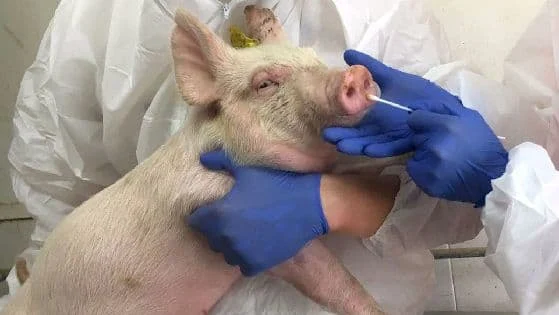"In ancient times, of course, you had to get the pure agent first. After that it was reproduced, and then it was only prepared as a vaccine. That took a long time. Today, technology has made it possible for us to do it quickly. There is no need for disease agents anymore and it can be made synthetic, so it can be very fast. In the past, it took a long time to find the seeds. Nowadays it only takes one or two months to find the seeds, "said Prof. Ngurah Mahardika, Virologist at Udayana University, recently.
Prof. Ngurah Mahardika said there are at least four types of vaccines that are differentiated based on their basic ingredients. The first is based on a pure virus that is killed so that it is not harmful to humans, some are based on DNA or mRNA, the third is an adenovirus-based vaccine, and the last is a protein-based vaccine.
"This variety of vaccine bases has advantages and disadvantages, of course, such as the deadly virus-based vaccine currently being tested in Indonesia is the most common type, so the regulations for use are much more concise. Meanwhile, DNA-based and adenovirus-based vaccines do not have examples circulating in the community. the regulation takes a long time, "explained Prof. Ngurah Mahardika.
Although technology is accelerating the discovery of new vaccines, a key factor that should not be ruled out in the procedure is ensuring the level of safety. Basically, vaccine researchers and developers do not compromise on aspects of quality, usability, and safety, including the safety of the Covid-19 vaccine which is to be discovered, must be guaranteed.
"For the safety aspect, it starts from the pre-clinical phase, which is tested on animals, then Phase I which involves human volunteers, Phase II which involves hundreds of volunteers, and Phase III which involves thousands of volunteers. In all phases, aspects of safety and usability are a concern. It is serious. Especially in Phase III, when it involves thousands to tens of thousands of people, "explained Prof. Ngurah Mahardika.
It doesn't stop there, after being circulated in the community, vaccines will continue to be monitored and contested continuously to ensure the safety of the vaccines in circulation later. It should also be noted that Indonesia is very likely to develop a Covid-19 vaccine independently. However, cooperation during the Covid-19 pandemic as it is today is not taboo. The cooperation aims to obtain high-quality data. Researchers and scientists in Indonesia also open domestic study data to contribute to world science and receive positive input from foreign researchers.
"Without cooperation, I think we are capable, but to achieve rapid progress it is deemed necessary by way of cooperation between countries and world science," concluded Prof. Ngurah Mahardika.
In addition to the news that vaccines can be found sooner, other good news comes from the Covid-19 cure rate as of November 1, 2020, which continues to increase. The recovery rate of all Covid-19 cases reached 82.84%. The rate of recovery and completion from isolation increased from the previous week, namely 80.51%. Then tracing and testing as of November 1, 2020, reached more than 4.5 million specimens and many of them were negative.
Keep in mind, #pakaimasker, #jagajarak at least 1 meter, and #cucitangan with soap is still the best preventive measures to date. We need to continue to be disciplined in practicing this 3M step in a package in order to avoid disease
Source: cnbcindonesia





